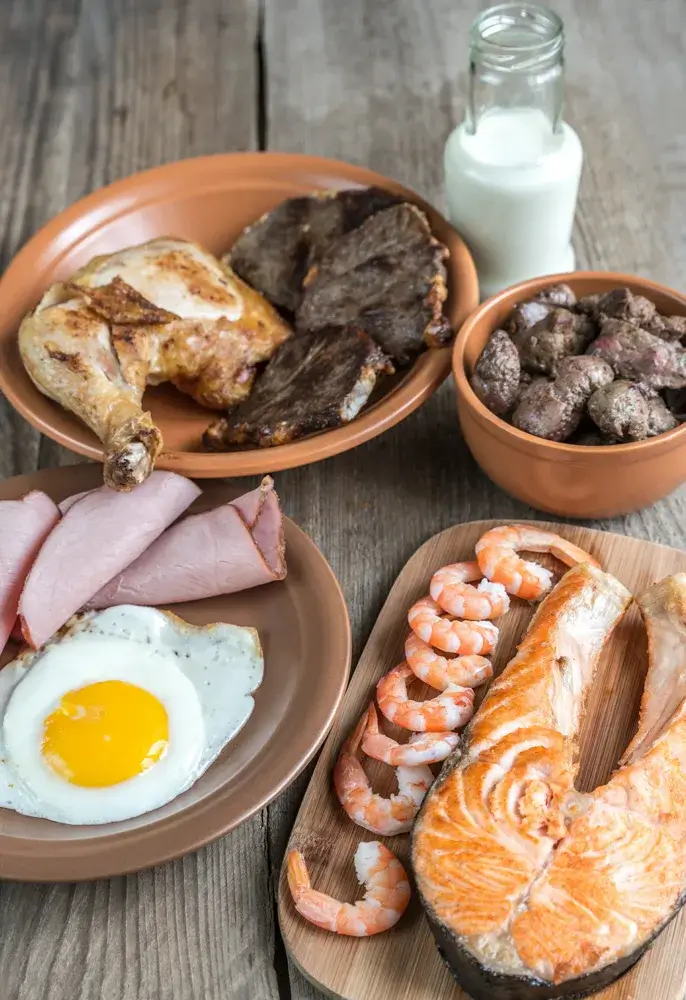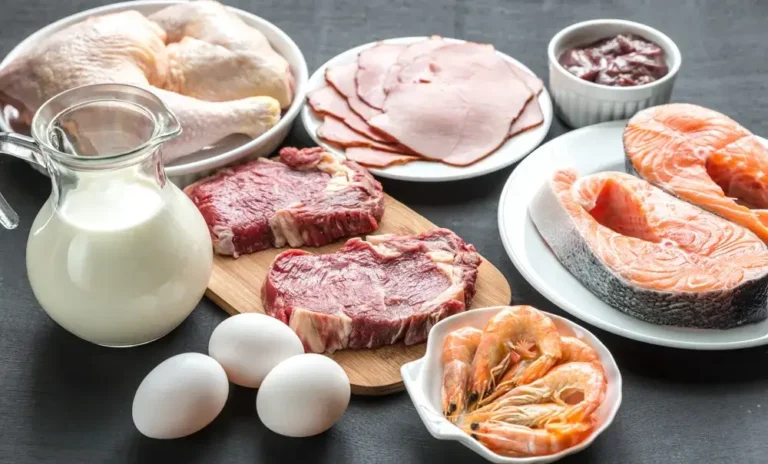The Carnivore Diet Food List and Meal Plan for Beginners
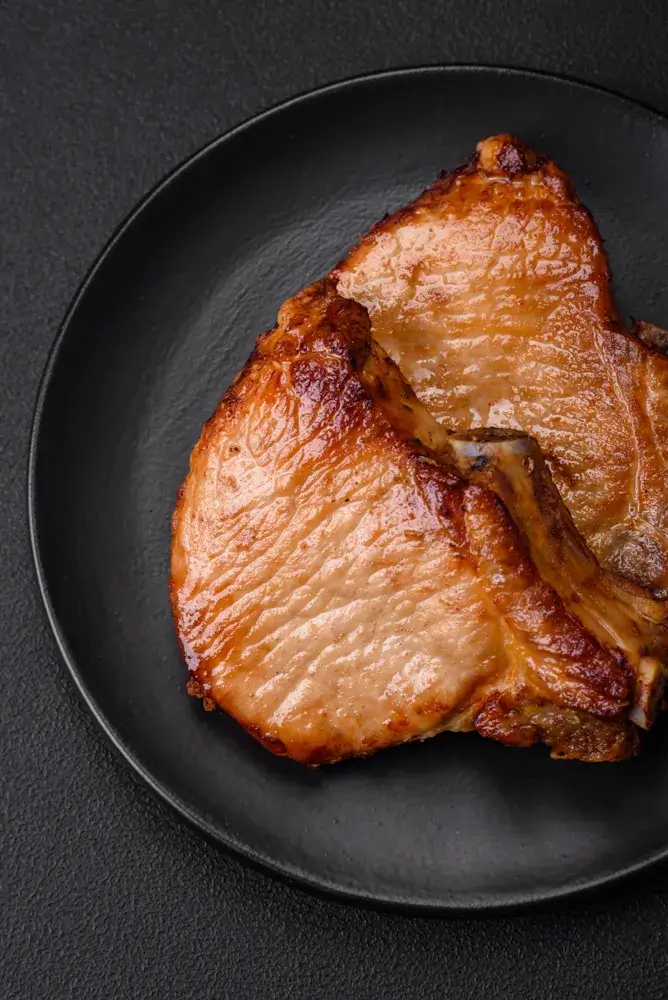
Imagine adopting a diet plan with only one item. Meat. Yes, meat only. Not even a single speck of leaf or grain on your plate.
That’s the carnivore diet. A meat lover’s dream.
If you’ve been browsing Pinterest or chatting with friends about diet trends, you’ve probably heard about the carnivore diet.
A meat-only diet may sound weird. When I first heard about it, I thought, “That’s impossible and definitely not healthy.” I am not a big fan of highly restrictive diets. They are simply not sustainable. However, when another fad restrictive diet promising enormous benefits starts trending, we have to take a deeper look.
Is the carnivore diet all it promises to be? Many swear by its benefits. The famous orthopedic surgeon and athlete, Dr. Shawn Baker, insists that the carnivore diet helped him reverse chronic autoimmune conditions.
The carnivore diet is gaining popularity for its simplicity and potential health benefits. Anyone who has tried other no-carb diets that didn’t help much is keen to know if the carnivore diet is the solution.
In this guide, we’ll cover everything you need to know about the carnivore diet, from the carnivore diet food list to a sample meal plan for this diet.
And if you decide to try the carnivore diet, keeping meals simple and planned ahead can make the transition so much easier, especially on a restrictive diet like the carnivore diet. I use this weekly meal planner to stay organized.
Weekly Meal Planner Spreadsheet with Automated Grocery List & Calorie Tracking
A simple all-in-one weekly meal planner spreadsheet to help you plan weekly meals, organize recipes, auto-generate grocery lists, and track calories and macros.
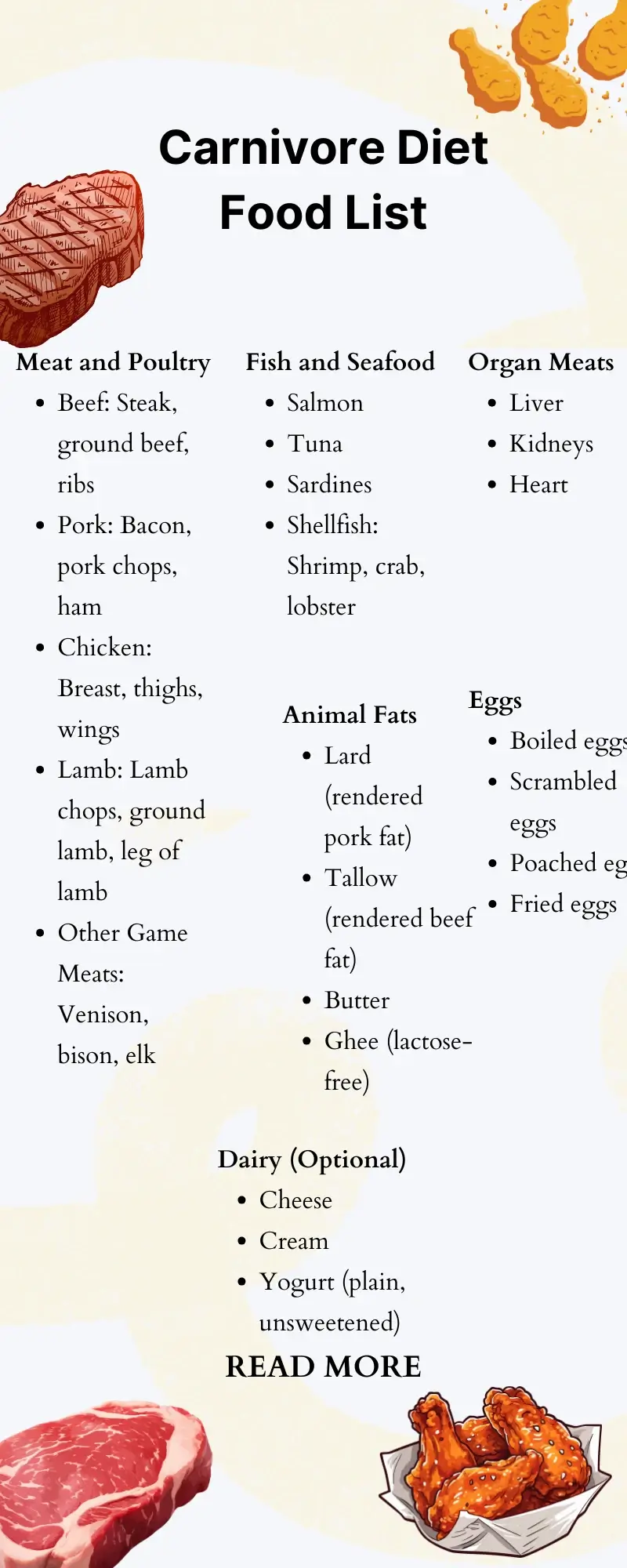
So, What is this Carnivore Diet
Simply put, the carnivore diet is a diet that consists purely of animal products. Think meat, fish, eggs, and some dairy.
Unlike other diets, there’s no room for fruits, vegetables, grains, or legumes. The idea is to get all your nutrients from animal sources.
Sounds radical and wild, right? That’s because it is a significant departure from the traditional balanced diet model that emphasizes plant foods.
To put it in perspective, the carnivore diet takes the low-carb approach of diets like keto and pushes it a step further.

Healthier Low Carb Alternatives to the Carnivore Diet
Best low-carb alternatives to the carnivore diet—nutrient-dense, flexible, and just as effective!
I’m sure by now you’re wondering, “And what about the nutrients?!”. That is the next logical question.
Well, carnivores should be well-nourished. Meat is nutritious and provides many macros and micronutrients. But again, a highly restrictive diet like the carnivore can easily overlook some nutrients.
From a more superficial perspective, you’re essentially eating like our hunter-gatherer ancestors did. And they were healthy. In fact, some people swear this strict focus on animal products brings them several health benefits.
The philosophy behind this diet is that humans thrive best on animal-based nutrition, which is believed to be more aligned with our evolutionary development.
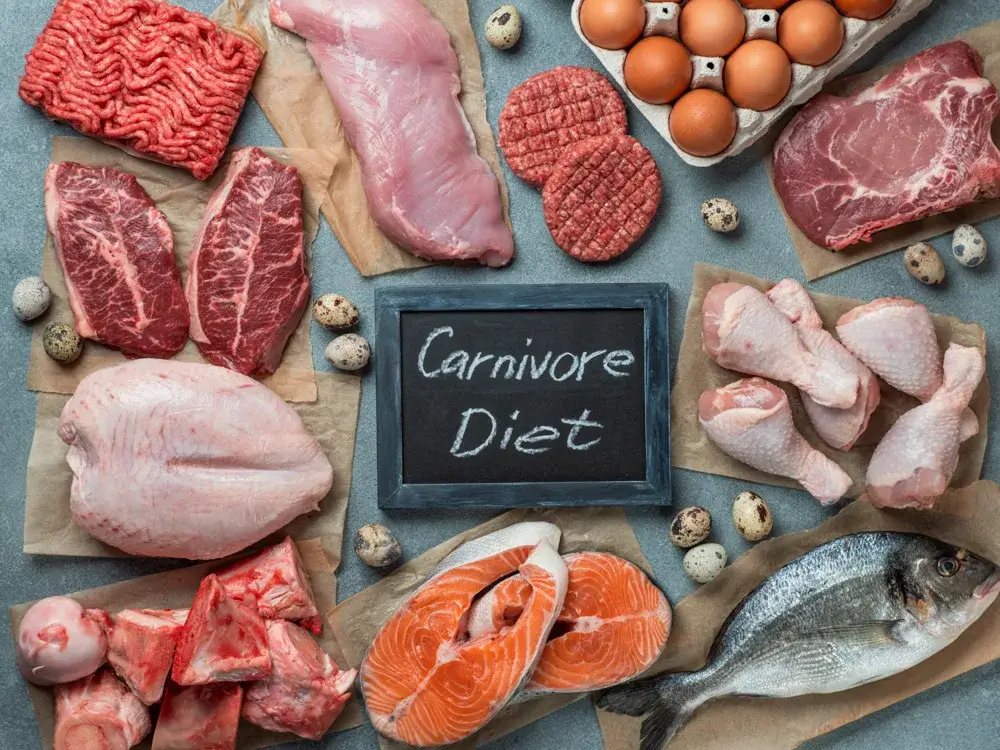
The Benefits?
The carnivore diet has several touted benefits that attract many people to give it a try. Here’s a closer look at why people are turning to this way of eating:
Weight Loss
Most people turn to diet plans to lose stubborn weight. Carnivore diet is no different. On the carnivore diet, your body shifts into a state of ketosis, burning fat for fuel instead of glucose. This shift can lead to significant weight loss, especially in the initial stages
Moreover, protein and fat are highly satiating, meaning you’ll feel full and satisfied longer, reducing the likelihood of overeating.
RELATED: CARNIVORE DIET FOR WOMEN
Mental Clarity
Many followers report improved focus and mental clarity on the carnivore diet.
In a 2021 study on the carnivore diet, nearly 85 percent of the participants reported a significant improvement in mental clarity and focus.
Basically, without the blood sugar spikes and crashes associated with carbohydrate consumption, your brain receives a consistent flow of energy from fat metabolism, which can enhance mental performance and concentration. The cognitive boost is likely due to the steady energy supply.

Digestive Health
Surprisingly, some people find that removing plant fibers and antinutrients helps with digestive issues like bloating, gas, and IBS symptoms. The carnivore diet’s simplicity means fewer ingredients that could potentially irritate the digestive system.
Actually, a 2012 study suggests that stopping or reducing dietary fiber intake can reduce constipation and other symptoms. This seems backward since extensive studies show that dietary fiber actually reduces constipation and supports digestive health. So, take this one study with a grain of salt.
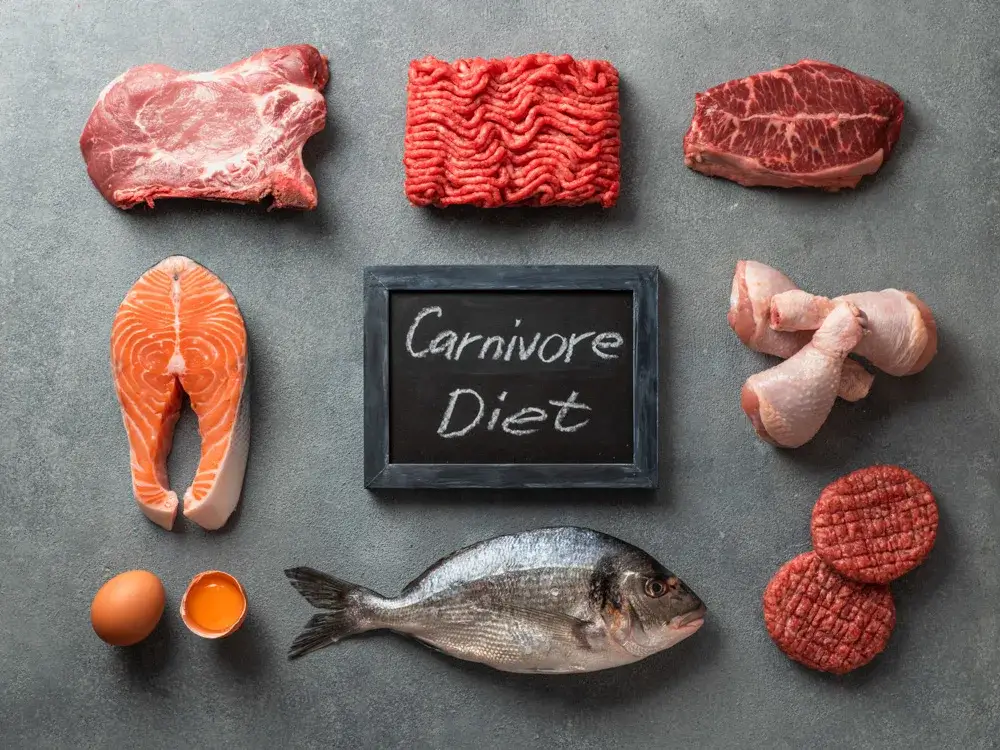
Potential Risks
While there are some compelling benefits, the carnivore diet, just like most restrictive diet plans, also has potential risks that should not be ignored. You need to understand these risks to make an informed decision.
Nutrient Deficiencies
Without fruits and vegetables, one risks missing out on essential vitamins and minerals like vitamin C, magnesium, and potassium.
I know that getting scurvy is now your greatest fear. If you have decided to try out the carnivore diet. There’s a solution. Make sure you eat a variety of meats, including organ meats, which are nutrient powerhouses.
You can also include supplements when on the carnivore diet to get a balanced intake of all necessary nutrients. For instance, vitamin C, while present in small amounts in fresh meat, might not be sufficient for everyone. You can decide to get a good vitamin C supplement to complement the small amounts you get from the carnivore diet.
Sustainability
For some, the restrictive nature of the carnivore diet can be challenging in the long run. I know it will be for me. You’ll need to forgo many foods you might enjoy, and that are part of social and cultural norms.
If you’re a food lover, you may find it monotonous and hard to maintain over time. Listen to your body, and if you find it too difficult, stop.
Most importantly, consult a healthcare professional before starting, especially if you have any pre-existing health conditions.
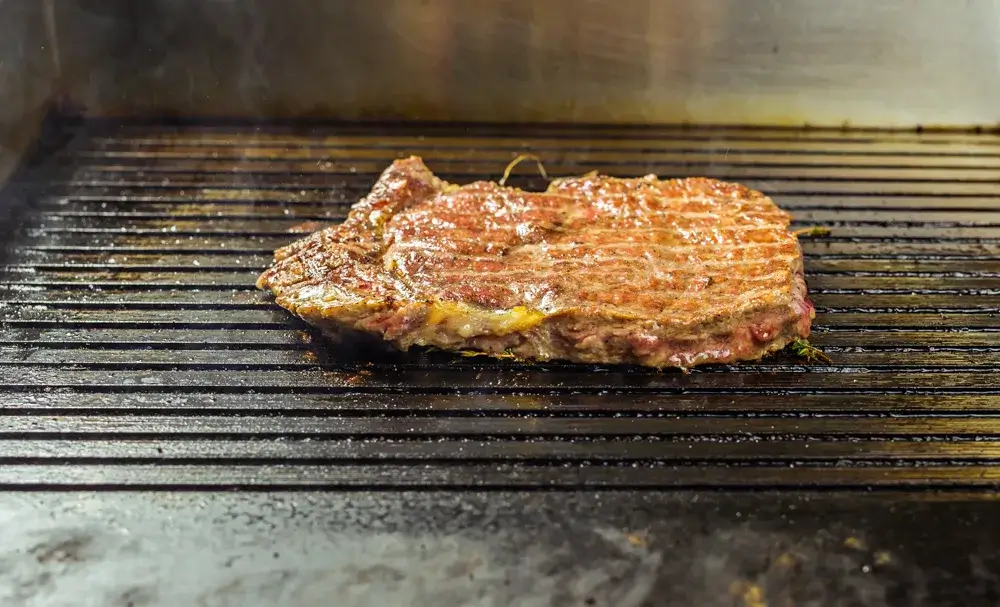
Carnivore Diet Food List
Knowing what foods are allowed can make the whole process much more manageable.
This list will be your go-to guide for what you can eat while on this diet.
Meat and Poultry
Grass-fed meat and poultry are the foundation of the carnivore diet food list. You’ll be indulging in a variety of meats.
- Beef: Whether you prefer a juicy steak, ground beef for burgers, or succulent ribs, beef should never miss on your plate. It’s rich in iron and B vitamins, which are crucial for maintaining energy levels.
- Pork: From crispy bacon and savory pork chops to hearty ham, pork offers fantastic variety. Bacon, with its flavor and fat content, can quickly become a favorite.
- Chicken: If you want lean meat, go for chicken breast, but you can also have thighs and wings. They’re tasty and have healthy fats.
- Lamb: Want some richer taste? Lamb is an excellent choice. Lamb chops, ground lamb, and leg of lamb are all fantastic options.
- Other Game Meats: Try incorporating game meats like venison, bison, and elk into your diet if you’re a food enthusiast. You’ll get unique flavors, and they are often leaner than conventional meats.
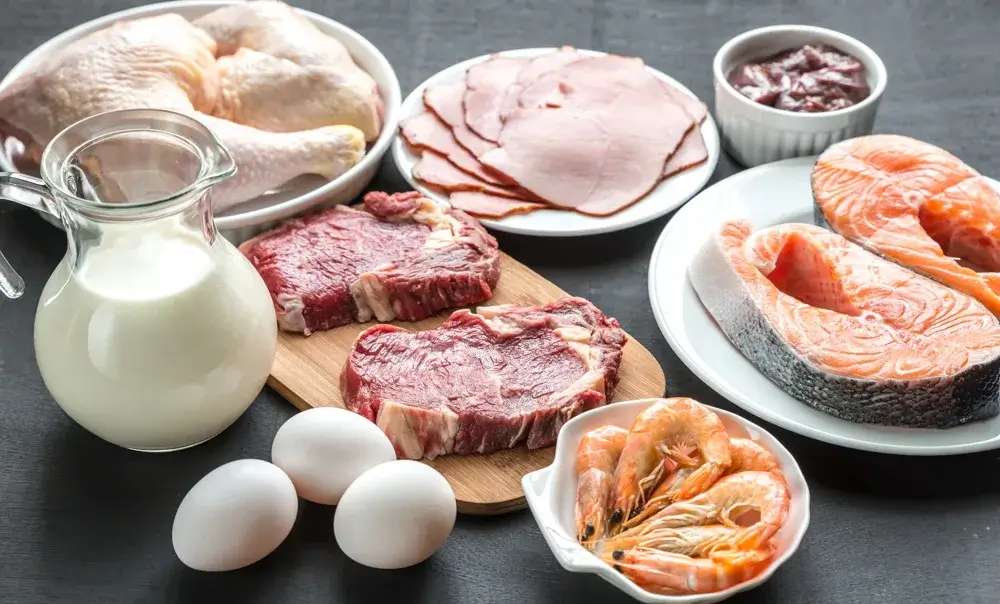
Fish and Seafood
Next up on the carnivore diet food list is fish and seafood. Eat fish and seafood to take care of your heart health. They’re tasty and a great source of omega-3 fatty acids.
- Salmon: Go for a fatty fish to get those essential omega-3s.
- Tuna: Want a quick meal? Tuna is lean, protein-rich, and easy to prepare.
- Sardines: Don’t overlook these small fish. They’re actually packed with nutrients, including calcium and vitamin D.
- Shellfish: Have little bits of shrimp, crab, lobster, and other shellfish for varied meals. They’re low in fat and high in protein.
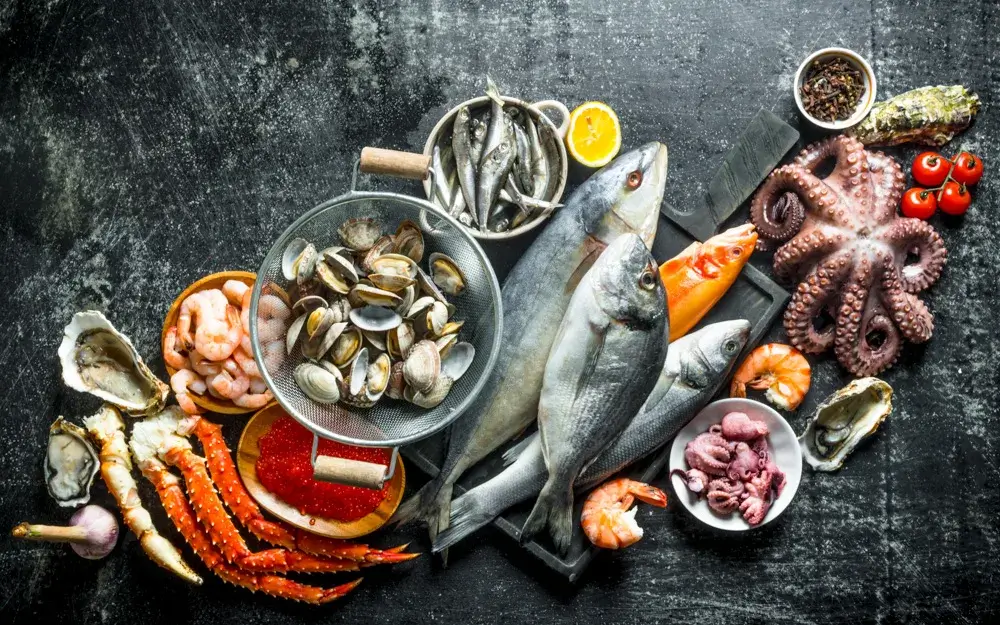
Organ Meats
Make it a habit to have even an ounce of organ meats in your servings. They’re nutrient powerhouses and an essential part of the carnivore diet food list.
- Liver: You can call it nature’s multivitamin. Liver is rich in iron, vitamin A, and many other nutrients. Worried about the taste and texture? Then prepare it as a pate!
- Kidneys: Great for their high nutrient content, including B vitamins.
- Heart: Rich in CoQ10 and other essential nutrients. Get a little wiser by grinding it.
Animal Fats
Don’t forget animal fat. They provide energy and help with the absorption of fat-soluble vitamins.
- Lard: Rendered pork fat. Great for cooking and adding flavor.
- Tallow: Rendered beef fat. Perfect for frying and sautéing.
- Butter and Ghee: These add a rich flavor to dishes and are fantastic for cooking. Ghee is suitable for you if you’re lactose intolerant since it’s lactose-free.
Eggs
These incredibly versatile and nutrient-dense are a staple on the carnivore diet food list. They’re easy to prepare and packed with protein.
- So versatile: You can enjoy them in various ways. Whether boiled, scrambled, poached, or fried.
- Nutrient Density: Go especially for the yolks. Great source of vitamins A, D, E, and B12, and choline, which is essential for brain health.

Dairy (Optional)
While some carnivore dieters choose to include dairy, it’s optional. Remember to focus on full-fat, low-carb options.
- Cheese: Good source of fat and protein, but be mindful of your lactose tolerance.
- Cream: Perfect for adding richness to dishes and coffee.
- Yogurt: Get plain, unsweetened versions. It’s a great source of probiotics, but some people might find it causes digestive issues. So, listen to your body.

Remember, variety within these food groups is the key to success on the carnivore diet. By including different types of meat, fish, organ meats, and fats, you’ll ensure you’re getting a broad spectrum of nutrients. Check out this carnivore diet shopping list to help you shop.
Simple Sample 7-Day Carnivore Diet Meal Plan
This sample meal plan is just to give you an idea of how simple carnivore-style eating can be. If you want to plan full weeks, reuse recipes, and avoid decision fatigue, then you need this weekly meal planner spreadsheet.

Works for every single diet, including the carnivore diet.
Day 1:
- Breakfast: Bacon and eggs
- Lunch: Grilled steak with butter
- Dinner: Pan-fried salmon
Day 2:
- Breakfast: Sausage and scrambled eggs
- Lunch: Chicken thighs with skin
- Dinner: Pork chops with ghee
Day 3:
- Breakfast: Cheese omelet
- Lunch: Lamb chops
- Dinner: Beef liver and onions
Day 4:
- Breakfast: Beef sausage
- Lunch: Tuna salad (with mayo)
- Dinner: Shrimp and butter
Day 5:
- Breakfast: Hard-boiled eggs
- Lunch: Ribeye steak
- Dinner: Chicken wings
Day 6:
- Breakfast: Greek yogurt (unsweetened)
- Lunch: Bacon-wrapped scallops
- Dinner: Beef ribs
Day 7:
- Breakfast: Omelet with cheese and ham
- Lunch: Pork belly
- Dinner: Grilled fish fillets
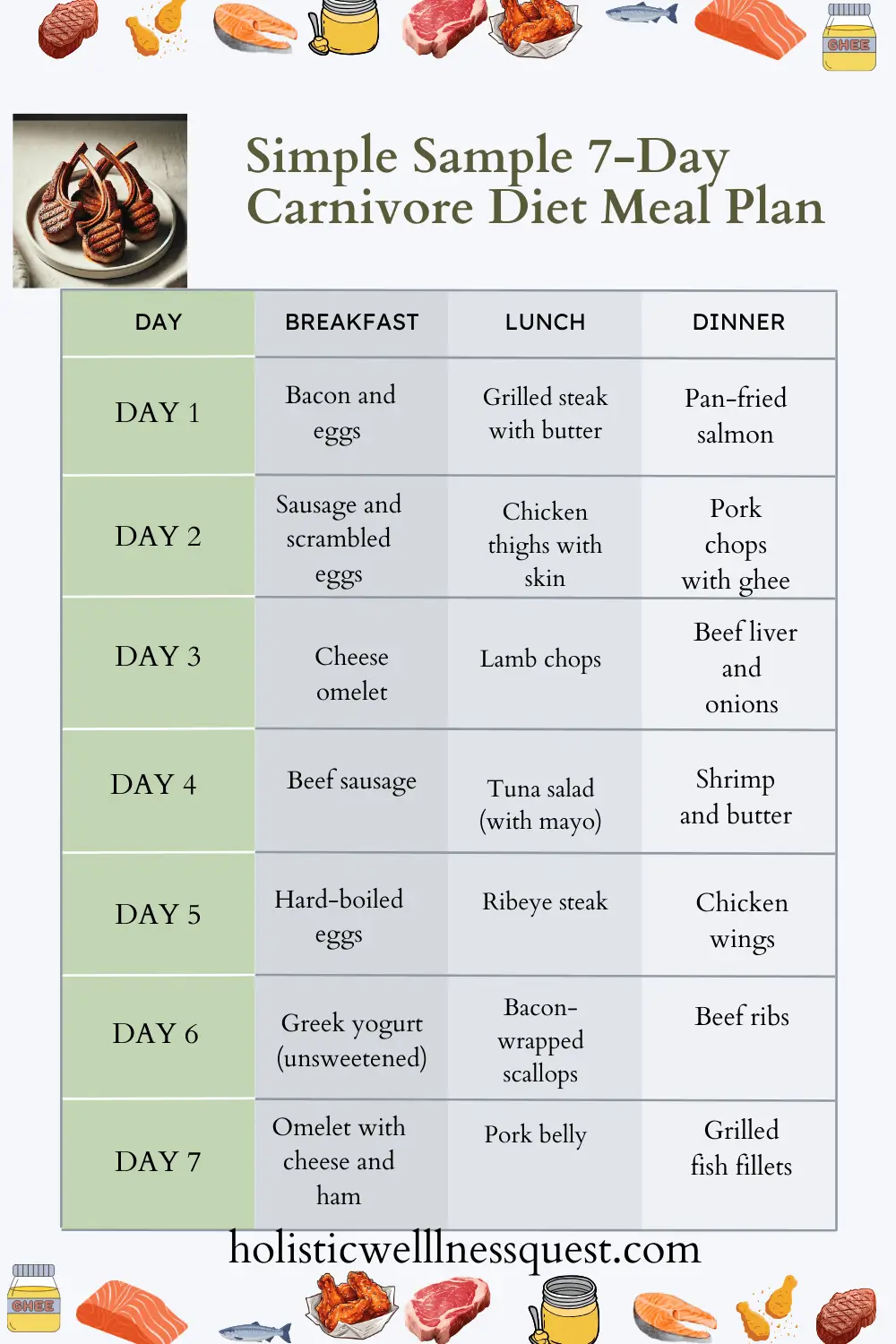
Tips and Tricks for Success on the Carnivore Diet
Are you ready? Starting the carnivore diet can be a big change. Like any lifestyle adjustment, it comes with its own challenges. However, if you have the right strategies, you can make the transition smoother and more sustainable.
Here are some practical tips to help you succeed on the carnivore diet:
Handle Cravings
Some people experience cravings for carbs or sweets when they first switch to the carnivore diet. If this happens, don’t worry. Your body is adjusting.
Keep some carnivore-friendly snacks on hand. Think slices of bacon, beef jerky, or hard-boiled eggs.
Stay Hydrated
Drinking plenty of water helps keep your body functioning optimally.
Consider adding electrolytes to your water. They’re vital for muscle function and energy levels. You can add a pinch of salt to your water or look for electrolyte supplements such as LMNT zero sugar electrolytes.
RELATED ARTICLE: ELECTROLYTES: BENEFITS, SIGNS YOU NEED MORE, AND HOMEMADE ELECTROLYTES
Ensure Nutrient Variety
Incorporate different meats and organ meats to help you achieve a well-rounded nutrient profile.
Don’t just stick to beef. Mix it up with pork, chicken, lamb, and fish. Organ meats like liver and kidneys are nutrient powerhouses that should be included in your diet.
Here is a sample carnivore diet shopping list to look at to make sure you grab all the must-have and the store.
Dining Out
Dining out can be tricky, but it is possible with some planning. Choose simple, meat-based dishes and ask for no sides when eating out.
For example, opt for a steak or grilled chicken breast and request no vegetables or bread. Instead, ask for extra butter or a side of eggs. Most restaurants are willing to accommodate your dietary needs if you explain them clearly.
Plan Meals Ahead
Planning meals ahead can help reduce stress when starting a restrictive diet plan like the carnivore diet. Since you have limited options, you’re better off planning your meals in advance to avoid quitting midway because you can’t figure out what to eat for dinner.
This is the meal planner I use to keep things simple. And it works for any diet. It is not limited to the carnivore diet.
Weekly Meal Planner Spreadsheet
Works for any diet or eating plan, not just the carnivore diet.
Listen to Your Body
Always listen to your body. What works for one person might not work for another.
If there is anything to take from this read, IS LISTENING TO YOUR BODY
Pay attention to how you feel and adjust your intake accordingly. If you’re feeling low on energy, you might need to eat more fat or include organ meats.
On the other hand, if you feel overly full or sluggish, try reducing portion sizes. Your body will guide you if you pay attention.
Most importantly, if it feels impossible, STOP. You can achieve all the benefits touted by the carnivore diet on a holistic diet based on mindful and intuitive eating.
Besides, there are other low-carb diet options that might work just as well, and they are less restrictive and more sustainable.
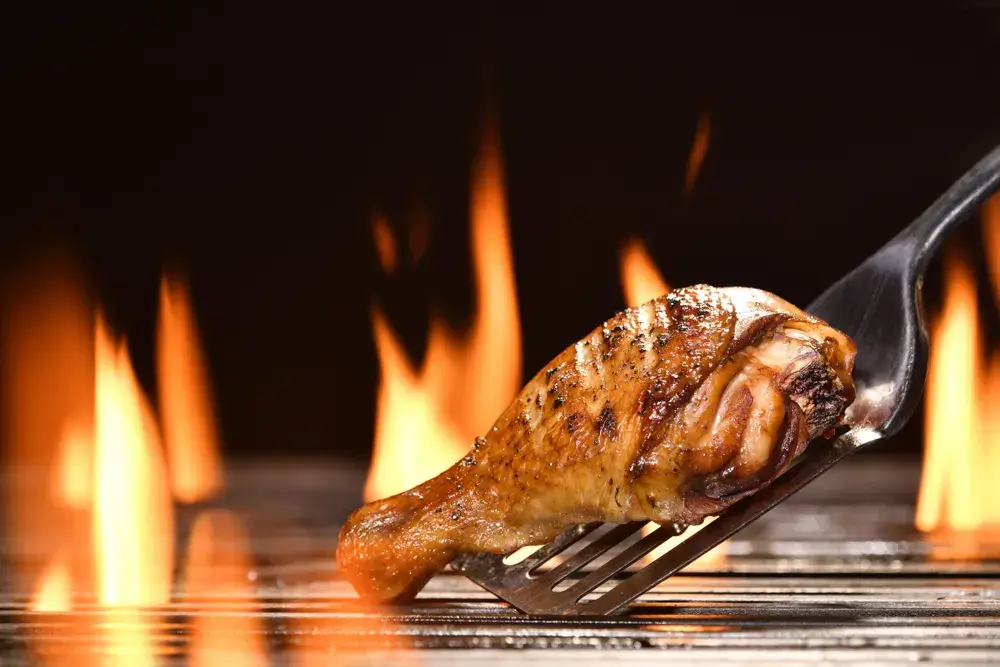
Conclusion
If the carnivore diet appeals to you, it can be a unique experience.
Whether you’re looking to lose weight, improve your health, or to simply try something new, this guide has everything you need to get started.
If you get on this diet, focus on a diverse carnivore food list, stay hydrated, and listen to your body.
But please note, if you find the carnivore diet too restrictive, you can opt for less restrictive low-carb options like the keto diet. Here is an article that can help you get started on the keto diet, especially if you are a beginner.
Don’t forget to join our Pinterest community for more tips, recipes, and support.

FAQ
If you decide to try out the carnivore diet and want an easy way to stay organized without using multiple apps, I use this reusable Google Sheets meal planner that works for every diet.
View WEEKLY MEAL PLANNER SPREADSHEET
Weekly Meal Planner Spreadsheet with Automated Grocery List & Calorie Tracking
A simple all-in-one weekly meal planner spreadsheet to help you plan weekly meals, organize recipes, auto-generate grocery lists, and track calories and macros.





